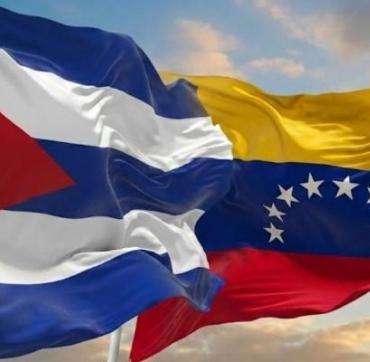Radiocuba: 30 Years Advancing Radiocommunications
especiales

Facing significant and varied challenges, Radiocuba, Cuba's radiocommunication and broadcasting company, reaches its thirtieth anniversary this October 1st.
Technological obsolescence, the blockade, fuel shortages, and financial constraints... these are obstacles that work against its mission of guaranteeing the broadcast signals for radio and television on the island. Yet, the company continues to advance and contribute to the digital transformation. Last June, Radiocuba's Commercial Director, Juan Carlos González Pérez, stated that they "suffer from the lack of fuel, the impossibility of importing parts and components (90% come from abroad), and the country's financial problems."
He exemplified the direct impact of the U.S. blockade on his company with the sudden cancellation of its satellite service. He explained that a French company, domiciled in the United States, suddenly informed them two years ago that it had to cancel the contract "because it had been 100% purchased by a U.S. company and was not authorized to continue operating with Cuba." They were quickly forced to find a new provider. *"Since the COVID-19 era, we have not received parts for maintenance,"* he noted, referring to the critical state of the radio and television transmission network, whose aging infrastructure causes constant interruptions.
But It Persists
Nevertheless, the constant effort of the National Association of Innovators and Rationalizers (Anir) movement within the entity makes it possible to extend the equipment's lifespan, with the same or even greater commitment than when the entity was created in 1995.
In a recent interview on the television magazine Buenos Días, the company's General Director, Leonardo Vázquez Figueredo, reported on the arrival of an important donation from the People's Republic of China, destined to continue the development of radio and digital television signals. A notable aspect of this donation is the possibility it offers to cover some silent zones, particularly in hard-to-reach geographies, especially in mountainous regions. Among the benefited areas—Vázquez Figueredo specified—are Puerto Escondido, in Matanzas; another in the province of Villa Clara; and one in Tercer Frente, Santiago de Cuba, where, with the inauguration of a new center in the community of La Lata, the central celebration for the 30th anniversary will be held.
When asked how Radiocuba ensures its services in the complex energy situation the country is experiencing, Vázquez Figueredo emphasized that it is a major challenge because "Energy is our raw material. We convert electrical energy into radiated energy precisely to be able to reach all homes."
To guarantee this, all its transmission centers have backup power generators that, in coordination with CUPET and the Ministry of Energy and Mines, ensure the sustainment of the signal, a priority of the country's leadership.
The executive indicated this and highlighted that "our workers are the fundamental assets of our company; and precisely their dedication and effort allow us to overcome that challenge daily and keep the signal on the air." Radiocuba is currently working on commissioning the equipment donated by China, which will reinforce transmission quality and achieve greater coverage.
They are also currently evaluating development projects related to radio to improve sound quality and increase the penetration of the radio signal. In parallel, they are working with universities, developing research and development projects to evaluate new products that allow them, through their own efforts, to "develop and have the resources required by the company to sustain the infrastructure, which is our greatest contribution to the country," concluded Vázquez Figueredo.
Translated by Sergio A. Paneque / CubaSí Translation Staff














Add new comment